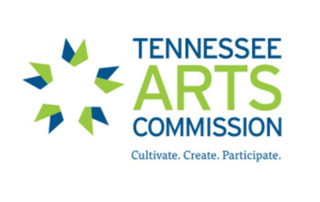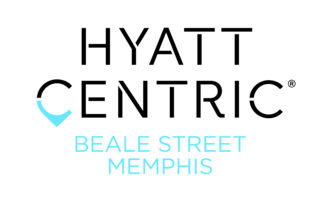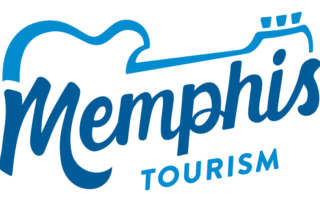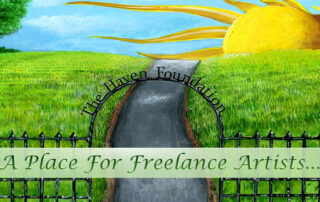KEEPING THE
BLUES ALIVE AWARD
KEEPING THE BLUES ALIVE AWARD
What is the Keeping the Blues Alive Award?
Each year, The Blues Foundation presents the Keeping the Blues Alive (KBA) Awards to individuals and organizations who have made significant contributions to the Blues world. The Blues Foundation will present the 2025 KBA Awards at a recognition brunch as part of the International Blues Challenge (IBC) weekend of events.
Unlike the Blues Music Awards, the award recognizing the past year’s best in recordings and performances voted on by thousands of The Blues Foundation’s members, the KBAs are awarded to non-performers strictly based on merit by a select panel of Blues professionals. The committee generally refrains from awarding the KBA to an individual or organization more than once. Instead, a new winner is selected each year, except in rare cases when a significant period has elapsed since the first award.
Affiliated organizations, past KBA recipients, and members of The Blues Foundation’s Board of Directors are eligible to submit nominations. If you know a deserving person, seek out one of those who are authorized to nominate and help them submit.
Nominees and recipients of the Keeping the Blues Alive Awards must be in keeping with The Blues Foundation’s values as a welcoming and inclusive organization, as reflected in our Statement Against Racism.
2025 Keeping the Blues Alive Award Recipients

This year marks the 33rd anniversary of the Rhythm Room, a cornerstone of the blues community in Phoenix, Arizona. Over the past three decades, the Rhythm Room has hosted thousands of performances by blues artists and has become a vital hub for the genre. In a city as large as Phoenix—the fifth largest in the U.S.—it remains the only venue offering weekly blues performances, making its role indispensable to the local music scene.
Owned and operated by blues musician and advocate Bob Corritore, the Rhythm Room has faced numerous challenges in its mission to keep blues music alive in the Southwest. At a time when many blues venues are shutting their doors, Bob’s dedication and personal sacrifices have ensured that the Rhythm Room remains a sanctuary for blues fans and musicians alike.
The Rhythm Room’s importance extends beyond its role as a live music venue. It attracts blues enthusiasts from across the country, providing local audiences with opportunities to see national and international blues acts, not just local talent. Moreover, the venue offers a unique benefit to musicians: many performers who play at the Rhythm Room are invited to stay an extra day to record in Bob Corritore’s world-class recording studio. These sessions often result in music that is distributed at no cost to the artists, providing additional income and exposure. This model of support is unparalleled among music venues globally.
In addition to its contributions to blues music, the Rhythm Room is a steadfast supporter of the broader blues community. It has hosted the Phoenix Blues Society’s International Blues Challenge competition and has been a longtime advocate for the Blues Foundation’s HART Fund, organizing an annual benefit where all proceeds from ticket sales go directly to the fund’s mission of helping blues musicians in need.
While the Rhythm Room welcomes artists across various genres, its unwavering commitment to blues music is what sets it apart. Few venues can claim such a strong and enduring dedication to preserving and promoting the blues. Through its exceptional efforts, the Rhythm Room has solidified its place as an essential institution for the blues community and beyond.

BLUES BLAST MAGAZINE has been a dedicated voice for the blues community, delivering weekly content to over 46,000 SUBSCRIBERS worldwide—all for free. With a legacy spanning nearly two decades, it has become an indispensable resource for blues fans, offering a wealth of music reviews, artist interviews, and stunning photography. The magazine's founder and publisher, BOB KIESER, has been an active supporter of the blues since 1998. He began his journey with the RIVER CITY BLUES SOCIETY (RCBS) in Peoria, IL, serving as newsletter editor and webmaster. In 2003, Bob was elected president of RCBS, during which he launched two new festivals: the WINTER BLUES FEST in 2004 and the LUTHER ALLISON MEMORIAL BLUES FEST in 2005.
In 2007, Bob launched a weekly digital newsletter called ILLINOIS BLUES BLAST with just 1,000 email subscribers. A year later, the publication rebranded as BLUES BLAST MAGAZINE and expanded its reach to a global audience. That same year, Bob introduced the ANNUAL BLUES BLAST MUSIC AWARDS (BBMAS). Originally hosted at Buddy Guy's Legends in Chicago, the BBMAs are now in their 17TH YEAR and have grown into the largest fan-based blues awards, with UP TO 12,000 FANS from across the globe voting annually.
Today, Blues Blast Magazine boasts:
- 46,000+ SUBSCRIBERS in all 50 U.S. states and over 90 countries.
- A dedicated team of 20+ WRITERS AND PHOTOGRAPHERS, all of whom are compensated for their contributions.
- An impressive archive of 900 CONSECUTIVE WEEKLY ISSUES, published every Thursday for 18 years.
- Over 5,500 MUSIC REVIEWS and 670 ARTIST INTERVIEWS, making it the largest publicly available online repository of blues information.
Blues Blast Magazine continues to uphold its commitment to promoting blues music and culture, providing a platform where fans and artists alike can connect, celebrate, and keep the blues alive.

Charlie Hussey, a devoted blues advocate from Ireland, has spent decades championing the genre through radio, photography, writing, and promotion. His remarkable journey began in his youth when he worked as a deejay spinning British blues rock at local dances. Though he remained a passionate fan for years, his active involvement in the blues world took off in the mid-1980s. Charlie’s persistent requests for blues music on Dublin radio earned him a spot on a jazz program, where he began curating and discussing blues records.
In 1992, 103.2 Dublin City FM launched, and Charlie debuted his now-iconic radio show, The Blues Train, which has aired every Sunday night for two hours ever since. This show is one of Europe’s longest-running blues programs, showcasing a mix of Irish and international blues artists across all styles. Over the years, Charlie has conducted interviews with blues legends such as Luther Allison, Honeyboy Edwards, Buddy Guy, Janiva Magness, John Mayall, and Johnny Winter.
Charlie's contributions extend beyond the airwaves:
- In 2008, he secured funding to produce a six-part radio documentary, Where the Blues Began, delving into the roots of blues music.
- The Blues Train has twice been nominated for the European Blues Awards as Best Radio Show.
- In 2020, the European Blues Union honored Charlie with the Blues Behind the Scenes Award for Media for his work on The Blues Train.
- His radio show is accessible online at www.dublincityfm.ie, with archived episodes on www.mixcloud.com.
Charlie is also an accomplished photographer, with his work featured in prominent British blues publications, books, posters, and the Blues Music Awards program, including its annual In Memoriam tribute. His photography can be viewed on www.flickr.com/photos/41420984@N07/.
In addition to his media efforts, Charlie has:
- Written numerous concert and festival reviews and published interviews with top blues artists.
- Played a key role in booking, promoting, and advising clubs, concerts, and festivals across Ireland.
- Actively participated in the 2008 inaugural meeting of the European Blues Union in Parma, Italy, and remains an engaged member of the organization.
As a dedicated fan, Charlie has attended countless blues performances across Ireland, Europe, and the United States. His travels include annual pilgrimages to the New Orleans Jazz & Heritage Festival, Beale Street Music Festival, and the Blues Music Awards, as well as iconic events like the King Biscuit Blues Festival and the San Francisco Blues Festival.
After nearly 35 years of unwavering support for the blues, Charlie retired in 2023, making this the perfect year for him to receive a Keeping the Blues Alive (KBA) Award. If selected, Charlie would be the first Irish recipient, a milestone for the international blues community. His lifetime dedication exemplifies what it means to keep the blues alive.

Based in Cincinnati, OH, the Cincy Blues Society recently celebrated its 34th anniversary, marking over three decades of dedication to promoting blues music locally and nationally. Since its founding, the Society has played a vital role in supporting both emerging and established blues artists, fostering a thriving blues scene in Cincinnati.
The Cincy Blues Fest, the Society’s longest-running program, launched in 1992. This all-volunteer-led festival boasts over 30 years of success, hosting hundreds of blues legends and positioning Cincinnati as a must-stop destination on national blues tours. Many performers return to the area, strengthening Cincinnati’s reputation as a hub for live blues music.
In 1999, the Society introduced the Blues in the Schools (BITS) program, educating thousands of children about blues history and performance. Additionally, the program mentors young musicians in the BITS Band, which performs annually at the Cincy Blues Fest, and the Cincy Blues Challenge, and has represented the region at the Youth Showcase in Memphis, TN. Several alumni have gone on to professional careers in blues music.
The Cincy Blues Challenge, now in its 25th year, has provided a platform for local talent, with many winners advancing to the semi-finals and finals of the International Blues Challenge, earning greater recognition and opportunities.
During the COVID-19 pandemic, the Society pivoted to host four virtual blues festivals on Facebook and YouTube, raising funds for local musicians affected by venue closures.
The Society also partners with notable organizations, including the City of Fairfield, 3CDC, the Ohio Arts Council, the Ohio Coalition of Blues Societies, Lebanon Blues Fest, Guitars for Vets, and premier venues like Mansion Hill Tavern, the Ludlow Garage, and The Belle and The Bear. In 2024, in partnership with 3CDC, the Society organized 28 free blues performances at Washington Park and Fountain Square, bringing live music to the heart of downtown Cincinnati.
Finally, the Cincy Blues Society honors Cincinnati’s first- and second-generation blues musicians with its Blue Ball Award of Lifetime Achievement, celebrating icons like Pigmeat Jarrett, Big Joe Duskin, Albert Washington, H-Bomb Ferguson, Sweet Alice Hoskins, and Philip Paul. This tribute ensures these trailblazers receive the recognition they deserve while they are still with us.
Learn more about the Society’s impact and programs at Cincy Blues Society.

The Blues Foundation proudly recognizes Little Steven’s Blues School for its exceptional contributions to blues music education through its longstanding partnership with the Notodden Blues Festival in Norway. Established in 1989 as the Notodden Blues Festival Blues Seminar, it stands among the oldest blues education programs for youth, fostering a new generation of blues talent in Norway and beyond.
The program has helped launch the careers of renowned Norwegian musicians such as Amund Maarud, Odd Nordstoga, Vegard Tveitan, Thomas Haugen, and Christoffer “Kid” Andersen, all of whom have become professional touring blues artists and musicians.
Little Steven’s Blues School offers two distinct pathways:
- Band Camp 1: An introductory program for youth aged 13–18.
- Band Camp 2: A more advanced, career-focused program for young adults aged 19–26.
Since 2015, Little Steven’s involvement has expanded the program’s reach, creating collaborations with the Pinetop Perkins Foundation and the European Blues Union. The school’s faculty includes esteemed Norwegian musicians and notable international guest artists such as Earl Thomas, Johnny Burgin, Bob Margolin, Lowell “Banana” Levenger (The Youngbloods), Canned Heat, Kid Andersen, Bernard Purdie, Doug MacLeod and Little Steven himself.
In 2024, Little Steven’s Blues School was featured in the documentary “Blues Town Rising,” which explores how blues music can drive cultural and community renewal. By inspiring young musicians to engage with and perform blues music, the school plays a critical role in preserving and advancing the blues tradition in Norway.
This program continues to be a beacon for blues education, proving that music can transcend borders and build vibrant communities.

In 1966, a young DJ named Ryszard Gloger played his first blues record on Radio Poznan from behind the Iron Curtain in Poland.
He contacted legendary American blues producers like Bruce Iglauer (Alligator Records), Chris Strackwitz (Arhoolie Records), and Marshall Chess (Chess Records), and they helped Ryszard build playlists for his “Luz Bluz” radio show. He also founded a local record club, edited a blues magazine, and produced over 60 albums and hundreds of recordings for radio and television.
Fast forward 26 years later: After the fall of the Berlin Wall, Ryszard traveled throughout Europe to many notable blues festivals. As a lecturer, he has taught the history of the blues in universities and cultural centers across his native Poland and throughout Europe. For the past 30 years, Ryszard has worked with award-winning blues festivals in Poland, such as the Rawa Blues Festival, Blues in the World, and the Jimiway Blues Festival.
Ryszard’s many honors include Sound Engineer of the Year, Best Radio Playlist, Lifetime Achievement Award in Journalism, and Media Personality of the Year.
In addition to being one of the first contributors to the national blues magazine of Poland, “Twoj Blues” (“Your Blues”) in 2000, Ryszard is an accomplished author. His latest book, “The Legends of the Blues and Guitar” has received many positive reviews. Ryszard Gloger’s commitment to blues music shows uncommon dedication, passion, and love for a uniquely American art form.

Nashville, TN holds a treasure trove of R&B history, much of which has only recently come to light. From 1935 to 1965, Nashville stood at the forefront of Black American music, with Jefferson Street serving as its vibrant hub. Spanning 30 blocks, Jefferson Street was lined with legendary clubs such as Club Baron, the New Era Club (where Etta James recorded her iconic live album Rocks the House in 1963), the Del Morocco, and the Black Diamond. These venues came alive every weekend with performances from 7 p.m. until the early hours, hosting national icons like Count Basie, Ray Charles, Ike & Tina Turner, B.B. King, Otis Redding, and James Brown, alongside Nashville's own stars, including Gene Allison, Charles “Wigg” Walker, Johnny Jones, and a young Jimi Hendrix.
Nashville’s influence extended beyond live performances. In 1946, WLAC Radio became the first major station to broadcast R&B records, breaking Jim Crow barriers and reaching 28 states and three Canadian provinces. This platform brought Black music to a mainstream audience for the first time. By 1964, Nashville also became home to Night Train, the first syndicated R&B television show, filmed at WLAC-TV. This precursor to Soul Train showcased both local and national acts, cementing Nashville’s role in music history.
Nashville songwriter and producer Ted Jarrett also left an indelible mark with hits like It’s Love Baby (24 Hours a Day) and You Can Make It If You Try. Meanwhile, Excello Records, a Nashville label, was pivotal in recording blues and soul artists such as Lightnin’ Slim, Slim Harpo, Roscoe Shelton, and even a spoken word sermon by Dr. Martin Luther King Jr.
For the past 23 years, the Jefferson Street Sound Museum has worked tirelessly to preserve this rich musical legacy. The museum is the passion project of Lorenzo Washington, who felt called to create a “temple” honoring Jefferson Street’s storied past. Now 81, Lorenzo was a firsthand witness to this golden era, a fan, and a friend to many of the musicians. His vivid recollections bring the past to life—stories of Hendrix as an emerging artist, B.B. King driving audiences into a frenzy, and the community spirit that defined the scene.
In recognition of his work, the City of Nashville has honored him with Lorenzo Washington Day, and he is celebrated as part of the Living Legends exhibit at the National Museum of African American Music (NMAAM) in downtown Nashville. The Jefferson Street Sound Museum stands as a testament to Lorenzo’s dedication and a living archive of a musical legacy that shaped not just a city but an entire genre.

Big Ed’s Blues Jam, founded in 1994 by dedicated blues enthusiasts Christine Santelli, Ed Sullivan, and Matt Mousseau, has been a cornerstone of the NJ/NYC music scene for over thirty years. Since its inception, this vibrant jam session has occurred every Monday night, providing a consistent and lively platform for blues musicians and fans alike.
For the first 17 years, Big Ed’s Blues Jam was held at the legendary Scotland Yard in New Jersey. After brief periods at various venues across New Jersey and New York, the jam found its permanent home in 2012 at The Red Lion, where it continues to thrive.
Renowned as a welcoming gathering spot for the New York blues community, Big Ed’s Blues Jam attracts visitors from around the world. Its international reputation is highlighted by the presence of musicians and fans from Australia, France, Japan, and many other countries, who regularly join the band, bringing diverse styles and talents to each session.
The jam fosters a nurturing and encouraging environment for musicians of all ages and skill levels. Whether young or seasoned, participants are supported and respected, gaining invaluable experience in stage presence, ensemble playing, and public performance. This supportive atmosphere has been instrumental in the development of many young professionals, including Grammy-nominated producer and performer Dave Gross and Nashville-based educator, bassist, and author Ryan Madora, known for "Bass Players To Know" and contributions to Bass Player Magazine and No Treble.
At the heart of Big Ed’s Blues Jam is its core house band, comprised of New York Blues Hall of Fame inductees and seasoned touring and recording professionals:
- “Big” Ed Sullivan – Guitar, vocals, host; Dixie Frog recording artist
- Arthur Neilson – Guitar, bass, vocals; Lead guitarist in the Shemekia Copeland Band
- David Bennet Cohen – Piano, vocals; Former member of Country Joe and The Fish, The Blues Project, Johnny Copeland’s.
- V.D. King – Guitar, bass, vocals, Garageland recording artist, producer
- Matt Mousseau – Drums
- Christine Santelli – Guitar, vocals, host, Vizztone, and Rapid Records recording artist
With its stellar reputation, Big Ed’s Blues Jam is preferred for touring and recording musicians in New York City. Esteemed blues artists who have graced the jam include Bettye LaVette, Shemekia Copeland, Bob Margolin, Jimmy Vivino, Watermelon Slim, Popa Chubby, Samantha Fish, Duke Robillard, Dave Gross, Mike Merritt (of Conan O’Brien Band and Johnny Copeland Band), Brian Mitchell (of Levon Helm Band and The Weight), Matt Hill, Rosie Flores, Bill Sims Jr., Bobby Radcliff, Brad Vickers, Ryan Madora, Willie Nile, and the late Richie Havens.
Through its long-term dedication and unwavering support for the blues and its musicians, Big Ed’s Blues Jam exemplifies the spirit of keeping the blues alive.









